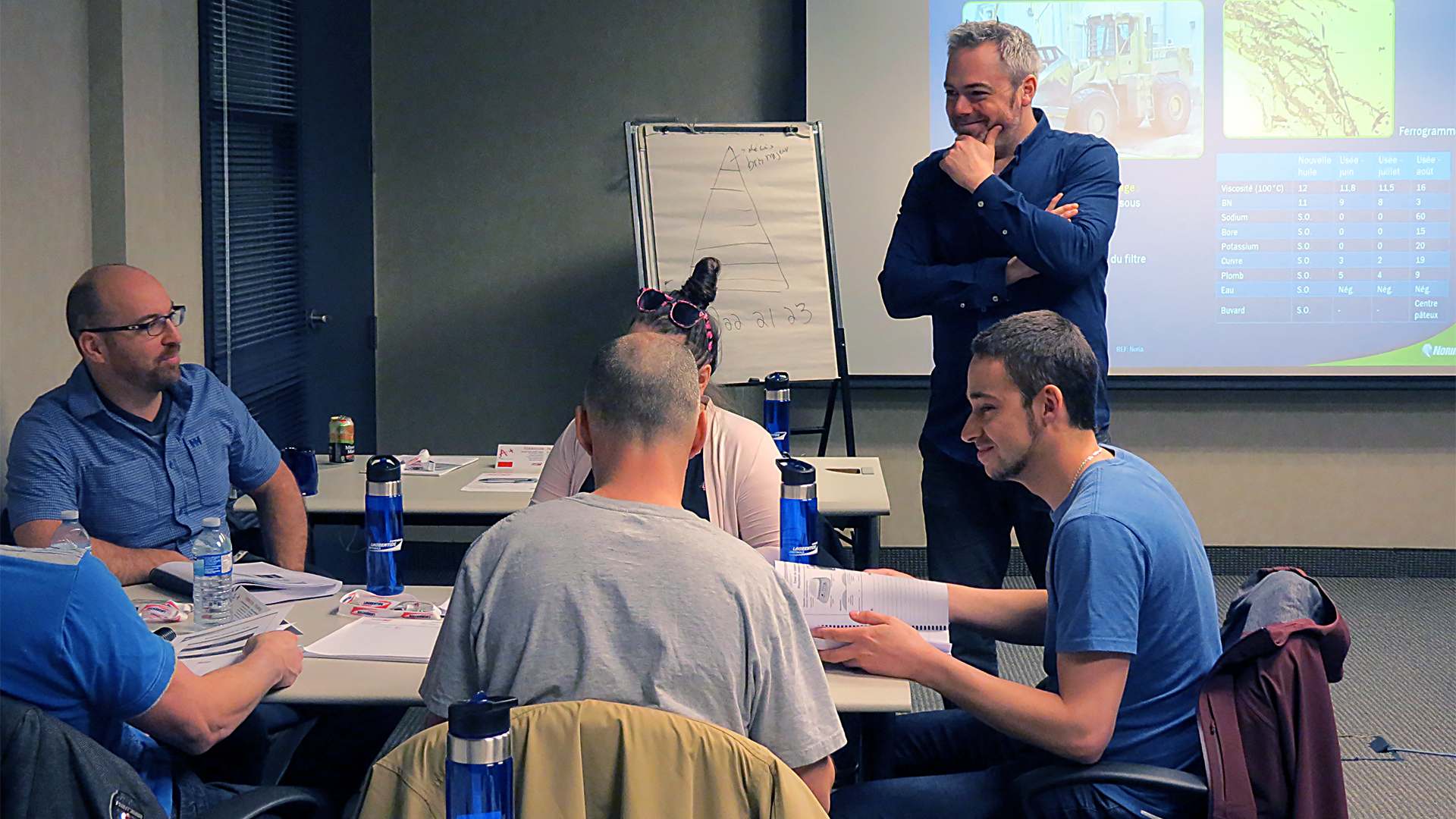Oil Analysis Report Interpretation
Turn oil analysis data into decisions
Learn a systematic approach to translating oil analysis reports into actionable maintenance decisions. You will learn how to select the right tests for measuring the right data points for specific processes, environments and machine conditions. The course also touches on achieving accurate and consistent data collection, removing data noise to accurately identify false results, elemental analysis interpretation, interpreting metallurgical composition combinations to identify wear modes, setting key performance indicators (KPIs) and alarm limits.
OARI Course Overview
- Course Duration: 16 hours (over two class days)
- Prerequisites: None (Who should attend?)
- Course Flyer: Download (PDF)
$1,195
Per student*


Upcoming Oil Analysis Report Interpretation training events
What you’ll learn
- Using trend report results to identify potential lubricant failures
- Identifying machine wear and failure modes from report data
- Determining when to change, clean or restore lubricant properties
- Selecting the right tests for collecting meaningful data on in-service lubricants
- Identifying a quality lab based upon key standards
- Interpreting results for determining base oil and additive health
- Identifying contaminants, lubricant failure modes and root causes of machine wear
Learn from expert instructors
Gain valuable knowledge from these industry experts
Who should attend?
Every year, industrial plants pay millions of dollars for commercial laboratories to perform analysis on used and new oil samples. Unfortunately, most of the plant personnel who receive these lab reports do not have the knowledge to get the full value of these reports. Anyone who wants to mine oil analysis data to make better maintenance, reliability, or engineering decisions can benefit from this course.
Job Title or Role |
Top Benefit |
|---|---|
| PdM Technician | Make better PdM decisions related to lubrication |
| Reliability Engineer, Maintenance Engineer, Reliability Manager, Maintenance Manager | Learn to use oil analysis data to drive reliability |
Course formats
-
Public Events
Available In-Person or Live Online Worldwide
$1,195
Per student
Get in-person training with Noria experts and your ICML certification exam after the course (exam application required).
Calendar -
Private Live Online
Private, Virtual Classroom
$15,995
Per course
Join Noria experts LIVE in our virtual classroom—no hotel or travel costs required. Pricing includes up to 25 color manuals.
Learn More -
On-site
At your facility
Starting at $16,825
Per course
Noria experts will come to your team, either in person at your plant or in a private live online classroom. Pricing includes up to 25 color manuals.
Learn More
Contact a Noria expert today
Frequently asked questions
What is check-in time for in-person training?
We ask that students check in on the first day of training (Tuesday) from 7:30 – 8:00 a.m. (based on local time at event)
How long does a day of training last?
A day of training typically begins at 8:00 a.m. and continues until 4:00 p.m. with an hour break for lunch.
Are food and beverages provided at in-person training events?
Complimentary fresh-brewed coffee will be available throughout the day, but students are responsible for their own food and drinks otherwise.
Is audio or video recording allowed during training?
No, please do not record audio or video of training course content.
Is parking included with registration for in-person training events?
No, parking fees are not included.
Other courses you may be interested in
-
Machinery Lubrication II
Machinery Lubrication II (ML II) covers advanced lubrication topics like lubricant selection, troubleshooting, predictive maintenance and more.
-
Oil Analysis II
Learn oil sampling best practices, how to identify improper additives or depletion, common contaminants, wear particles/faults and more.
-
Oil Analysis III
Reach higher levels of diagnostic insights and oil analysis program design. Learn what it takes to launch a successful oil analysis program.





